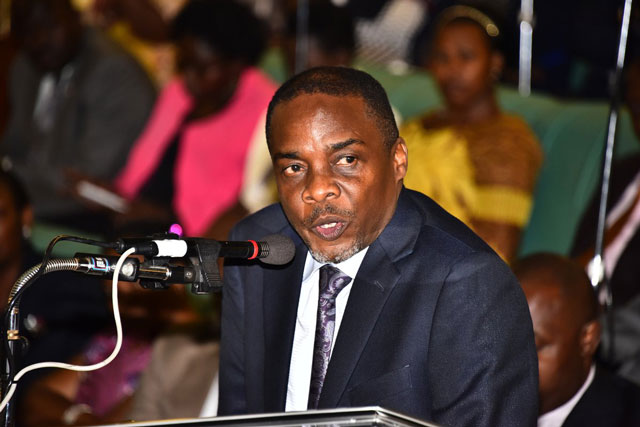General Science may lock out people with special needs from pursuing science-related courses, educationists and people with special needs have revealed. The Education and Sports Ministry introduced General Science for students who couldn’t handle traditional science subjects.
Francis Okello Oloya, who is living with visual impairment told the second national symposium on inclusive education that by design, General Science doesn’t enable learners with special needs to pursue science-related programs as they advance through the educational system.
“General science is not what they call it. The content is exclusive. We hear that by offering this course a learner might not proceed to offer science subjects at other levels. This needs to be examined; if the proper teaching strategies, educational technology, and assessment are used, these students can handle science courses,” Oloya said.
According to available information, General Science is one of the subjects in the lower secondary curriculum integrating elements of physics, chemistry, and biology. Generous Kazinda, a Curriculum Development Specialist at the National Curriculum Development- NCDC, explained that this subject is aimed at visually impaired students and other special needs groups who might not be able to conduct conventional laboratory investigations.
Kazinda added that the subject mostly comprises fundamental application elements that students can apply in their daily lives. He confirmed that if a learner undertakes General Science, he or she is not expected to take on a science combination/ subjects at A Level given the fact that he or she will not have the required fundamentals.
Traditional science teaching in Uganda has mostly relied on visual instruction and practicals. Some students, such as those with visual impairment or partial sight included in regular classrooms, find it challenging to acquire the concepts.
But, Dr. Patrick Ojok, an expert in Disability Studies and Inclusive Education, says that visually impaired children have the same range of cognitive capacities as their colleagues with normal eyes sight and can master higher-order science concepts just like any other ‘normal’ student.
Ojok further notes that in order to ensure that no student is precluded from pursuing a particular subject or course, the authorities should be looking at solutions instead of designing exclusive curricula.
The disability studies and inclusive education expert adds that careers in science are now accessible to students with special needs thanks to advancements in assistive technologies. Ojok notes that even visually impaired people have achieved success in many scientific domains, such as engineering physics, oceanography, chemistry, and astrophysics, in nations that have made investments in them.
Studies have shown that visually impaired students comprise the largest number of learners with special needs, followed by those with physical disabilities, and learners with autism while those with multiple handicaps are fewer.
Kazinda noted that the curriculum experts will have to look into the issues raised. She, however, noted that the concern that one could be prevented from pursuing science-related subjects at A Level may not be relevant in the future given that NCDC is trying to change the advanced level curriculum.
–URN





